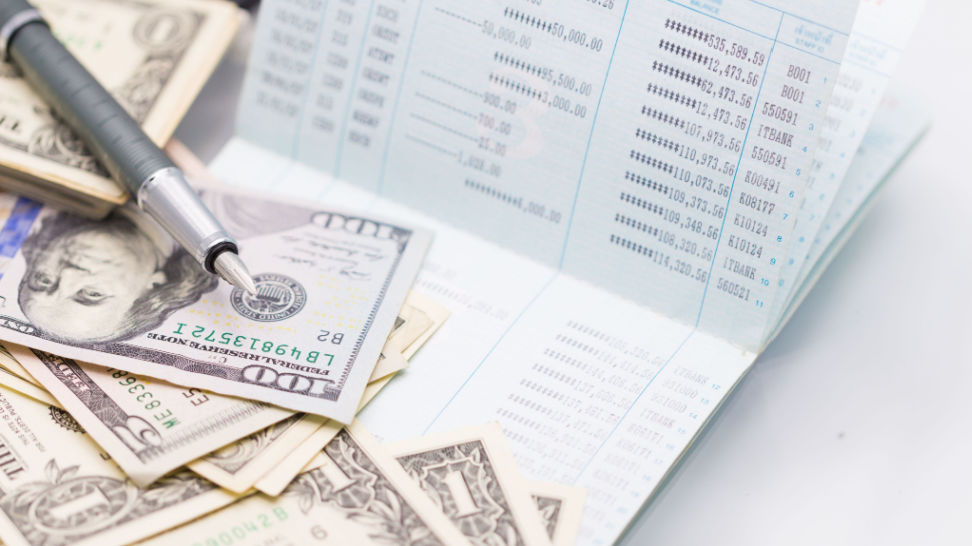Whether you lost a lawsuit or fell behind on payments with a creditor, you could find yourself in a situation where the creditor has filed a debt collection lawsuit that threatens to seize your assets.
Assuming you legitimately owe money to another party, the court is likely to issue a judgment ordering you to make the creditor(s) whole.
If you are unable to pay the amount of the judgment, the creditor can file a claim against your assets. Despite how dire this action sounds, debtors still have rights that a creditor must not violate, and not all property can be seized in a judgment.
This article outlines the types of property that can be seized by a judgment creditor and what you need to know when your property is subject to seizure.
What Is a Judgment?
In short, a judgment is a court order that results from the court making a decision in a lawsuit where the creditor wins. If you are in a legal battle with a debt collector, the judgment entitles the creditor to legally claim that you must pay the amount owed.
If you fail to pay the money in a timely manner, the creditor can take further action to collect the debt, including seizing your assets.
Types of Personal Property that Can Be Seized in a Judgment
When a creditor seeks to seize property, the goal is to collect funds by collecting money or liquidating certain types of property to satisfy the debtor’s obligations.
Personal property can include:
- Cash and bank accounts
- Wages and investment accounts (including IRA accounts, in some circumstances)
- Cryptocurrency
- Retirement benefits
- State and federal benefits
- Motor vehicles (cars, trucks, boats, motorcycles)
- Jewelry
- Art
- Household goods
- Business equipment
- Assets you gifted to your spouse or another individual
State law dictates what debtor’s assets and property can be seized in judgments, and the rules vary. Federal law may also be inconsistent with state law, so speaking with an attorney is one of the best ways to clarify which assets qualify for exemptions in your state.
Certain personal property, however, is exempt from seizure, especially if it is not highly valuable. An asset protection or bankruptcy attorney can give you guidance in this area.
State rules also vary when determining whether your home can be seized. Note that your home is real property, not personal property. Some states do not allow a creditor to seize your primary residence, limiting seizures to investment, rental, and commercial properties.
In most states, examples of exempt property and exempt income include:
|
|
The above list includes most of the available exemptions, but it’s important to remember that state law varies, so the protected assets that qualify as exempt from creditor action in one state might not apply in another.
Differences Between Personal Property and Real Property
Property is an umbrella term that can encompass both land and the “things” you own. Though many people generally associate real property with real estate, the primary distinction between personal property and real property is that personal property is generally movable, while real property refers to land and buildings.
While your home is real property that is sometimes exempt from seizure, some states provide exemptions if your home equity has exceeded a specific threshold. The rationale is that there is enough equity in the home so that one can sell it and pay down a significant portion of the debt while still having enough money left over to obtain another residence.
Things You Need to Know About Property Seizure
It’s prudent to be aware that physical property is not the only type of property that can be seized. Something doesn’t necessarily have to be a tangible asset to satisfy a debt. In fact, creditors can even claim a right to future properties and assets that you don’t own or possess yet.
For example, the list below outlines assets and other property that a debtor doesn’t own yet that could be seized to pay a creditor:
- Future commissions
- Royalties
- Tax refunds
- Insurance payouts
- Stock options and dividends
- Inheritances
Even if you lose in court, your property is not automatically seized and turned over to debt collectors. The creditor must still take action to initiate collection from the debtor.
Further, if you look at the situation from the creditors’ perspective, their interests are to collect as much money as possible to satisfy your debt without having to do a lot of work.
Therefore, if you still have a car loan and little equity in your vehicle, the creditor will likely avoid seizing that asset. Similarly, creditors are usually not inclined to claim a right to your personal possessions unless they are exceptionally valuable.
If, however, your worldly possessions are forcibly seized for non-payment of a judgment, you will likely be served (depending on where you live) with a writ of execution by a sheriff or court-appointed officer. This person will peacefully remove the property, and the items will be sold at auction.
Instead, creditors usually look to low-hanging fruit, like garnishing wages or a bank account, to avoid the hassle of having to sell property in an auction.
How a Creditor Can Seize Non-Exempt Property
If you do not pay the judgment from the lawsuit, the judgment creditor can take further action to collect the debt. The first step in this process is a judgment debtor examination.
The judgment debtor’s examination is a court proceeding that serves to discover the eligible assets that can be seized. It is initiated through a Motion for Examination of Judgment Debtor.
The judgment debtor’s examination proceeds under oath, so lying or hiding assets could result in paying a heavy fine or serving jail time.
Despite the “honesty is the best policy approach,” you are under no obligation to volunteer information unless asked. If the creditor doesn’t ask you about certain property, you don’t have to disclose it voluntarily.
Depending on your underlying assets, the attorney representing the judgment creditor might elect to walk away from the debt or be willing to discuss a settlement.
If a debtor is concerned about having assets seized because they owe a creditor money, they can also attempt to work out an arrangement with the creditors for them to be paid less than the balance owed.
Can I Sell My House if I Have a Debt Judgment?
A judgment lien may be placed on the house a debtor owns.
Technically, yes, the home of the debtor can be sold, but the lien must be disclosed to a prospective buyer. Because a lien on the property affects whether the title is clean, if you plan on selling your home with a debt judgment, you will have to devise a plan for addressing the judgment to satisfy the debt.
The good news is that you can pay the judgment at closing, so you can still sell your home even if it has a judgment. Another potential option is to wait for the judgment lien to expire, but most states allow judgments to be extended on some debtor’s assets, like real property.
Some buyers may be willing to buy a home with a judgment lien in “as-is” condition, meaning they’ll take on the debt associated with the judgment. These buyers are rare, but they do exist. Typically, as the seller, you may have to lower the price of the home to offset the amount of the judgment.
Is It Possible to Buy a House if I Have a Debt Judgment?
Unless you’re able to purchase the home with an all-cash offer, you will not be able to qualify for a mortgage with a debt judgment. You can clear the debt judgment by paying the money you owe.
Bankruptcy is another option to clear the debt judgment. However, this extreme measure will negatively impact your credit score, further compromising your ability to obtain a mortgage.
Can I Transfer My Property to Keep It Safe?
If you are concerned about losing property in a judgment, you can potentially transfer it to a family member, charity, or another recipient. It’s recommended to consult with an attorney before transferring property ownership, as there are other risks that you could incur. For example, what if you transfer cherished personal property like a valuable heirloom to a family member who, in turn, incurs a future debt judgment?
There could also be tax consequences for transferring property, including gift taxes for you as the donor or capital gains taxes for the recipient.
Some debtors that know a debt judgment is coming may attempt to hide assets to avoid having them seized by creditors. This practice is sometimes illegal, and almost every state has enacted the Uniform Fraudulent Transfer Act, which prohibits a debtor from transferring or hiding property that should be reserved for satisfying a judgment creditor.
Depending on the state where you live, there are varying grounds for determining whether a transfer was made fraudulently. Common red flags are when fraudulent intent is clear, or the transfer was made without receiving reasonable compensation, where receiving payment would be customary.
Another consideration is whether transferring the property left the debtor in a situation bordering on insolvency, making it less likely to be able to satisfy debts.
Asset Protection Plan
Whether you work in a high-risk profession where you could be subject to a judgment, or you’re a high net worth individual concerned about a ruling that orders seizing assets, the key to asset protection is to be proactive.
You are unlikely to get away with hiding money and assets once a lawsuit has been filed, but you still have the option of meeting with an attorney or law firm to discuss various asset protection strategies.
Asset protection plans are valuable, not merely to avoid creditors but also to protect against court rulings and judgments in today’s litigious society. A single mistake could put your life’s work and legacy at risk.
Consult a Property Asset Protection Attorney
Blake Harris Law works with clients nationwide to create robust asset protection plans. To schedule a consultation, contact our office today






